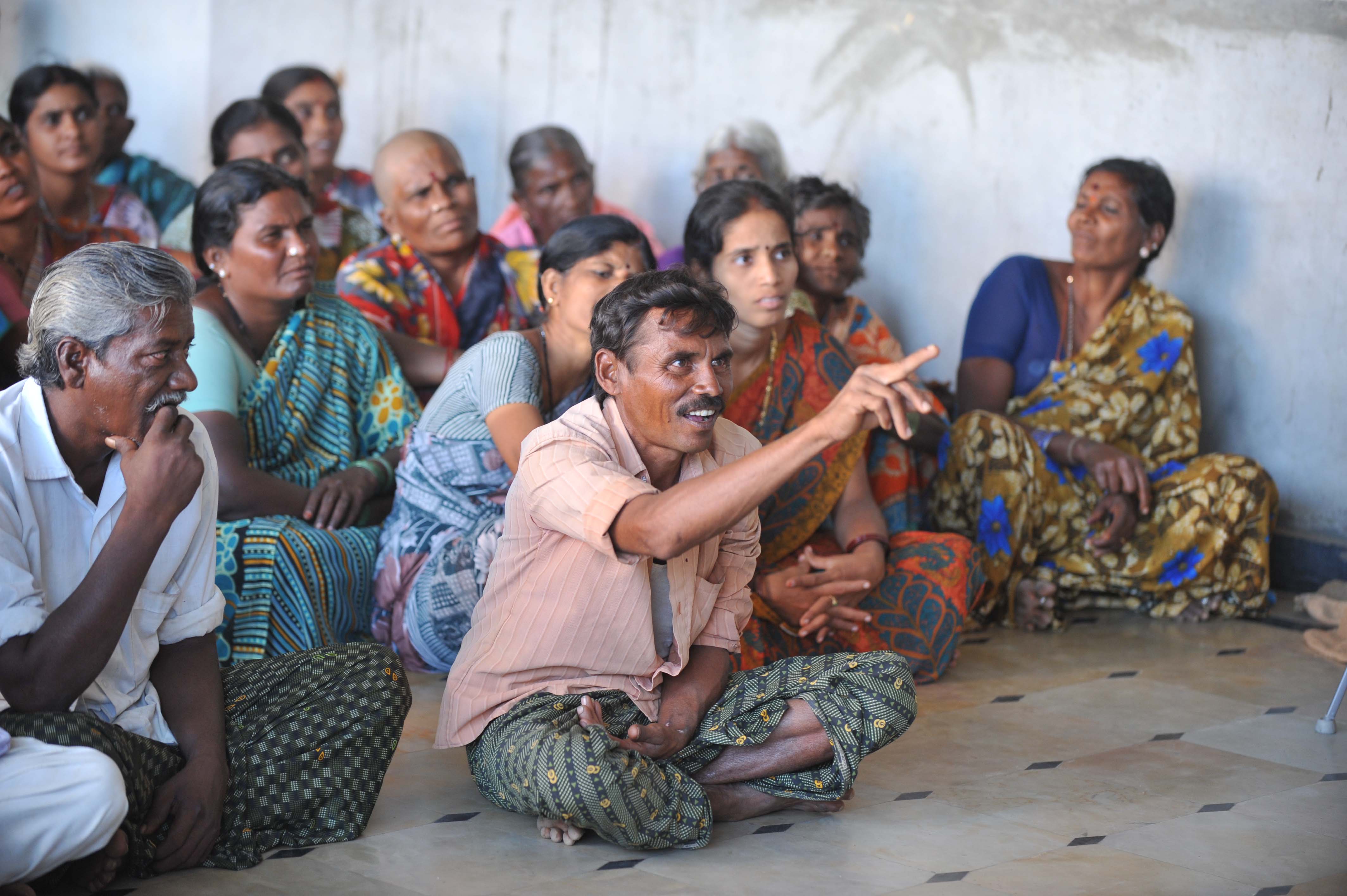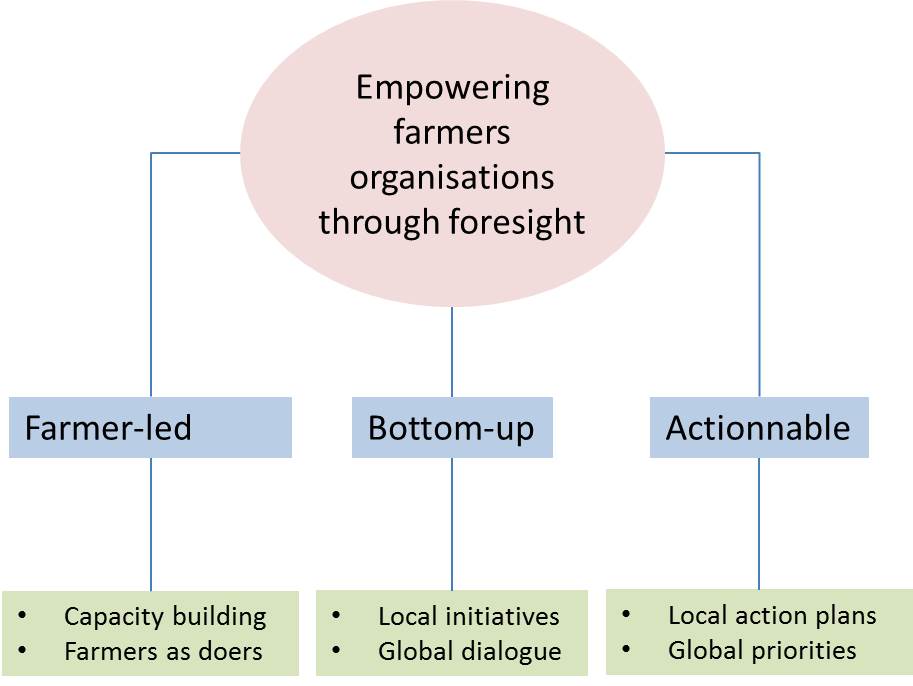
“How we share the future will not only be determined by how we share our rulebooks, and how we share the planet, but also how we share decision-making”. Claire A. Nelson, Chief Ideation Leader of the Futures Forum. Development (2014) 56(4):478.
The future is an area of increasing uncertainty. Though the future cannot be predicted, it can be explored. Exploring the future helps making better decisions in the present time. It opens new paths, unveils new options, and enlarges our understanding of potential unexpected effects of our decisions. At a time when climate smart agriculture is taking momentum in the international community, the urgency of more “future smart” farmer organisations and local communities becomes imperious.
What is it to be “future smart”?
It means being aware that you are an agent of change. It means that you can find what could be done to bend undesirable trends. It means that you can find what could be done to transform your future before it happened. Being more “future smart” means to equip yourself with the mindset and competences needed to engage individually and collectively in shaping your future.
Why more “future smart” farmers’ organisations and rural communities matter?
In food, agriculture and rural development, not all can use the future to make better decisions in the present time. Indeed, those whose livelihoods is directly at stake – farmers, rural inhabitants and communities- are usually not sufficiently equipped to be pro-active and anticipate and explore current and future interconnected challenges. Yes, farmer organisations and local communities care about their future. But so far, no systematic attempt has been undertaken to support them to engage at local level to engage as foresight leaders, and at a scale that would enable them to significantly shape the future of agriculture, food and rural development.
The future is a place of freedom and power. Denying the possibility for those whose livelihoods are at stake to invest this place is to deny their right to self-determination. The voices and the views of “future smart” farmer organisations and local communities are needed to influence the national and international agendas. They will make possible to articulate scenarios from the municipal to the provincial and national levels.
How to support the emergence of more “future smart farmers”?
 The Global Forum on Agricultural Research is supporting a grassroots foresight initiative for the development of local foresight capacity of farmer organisations and local communities on the future of family farming and agriculture. It provides the opportunity to empower them as leaders in participatory foresight initiatives with other local stakeholders, leading to actionable plans for addressing main challenges. The Forum will also support them in engaging in higher level dialogues on future challenges in connection with food, agriculture and rural development.
The Global Forum on Agricultural Research is supporting a grassroots foresight initiative for the development of local foresight capacity of farmer organisations and local communities on the future of family farming and agriculture. It provides the opportunity to empower them as leaders in participatory foresight initiatives with other local stakeholders, leading to actionable plans for addressing main challenges. The Forum will also support them in engaging in higher level dialogues on future challenges in connection with food, agriculture and rural development.
Future smart farmers, and more generally future smart citizens and citizen organisations are needed to bridge the gap between policy makers and habitual foresight producers. The next generation of future smart farmers and citizens will not be satisfied with being aware of futures studies; they will want to be included, to be doers.
Photo credit: ©FAO/Noah Seelam.jpg
